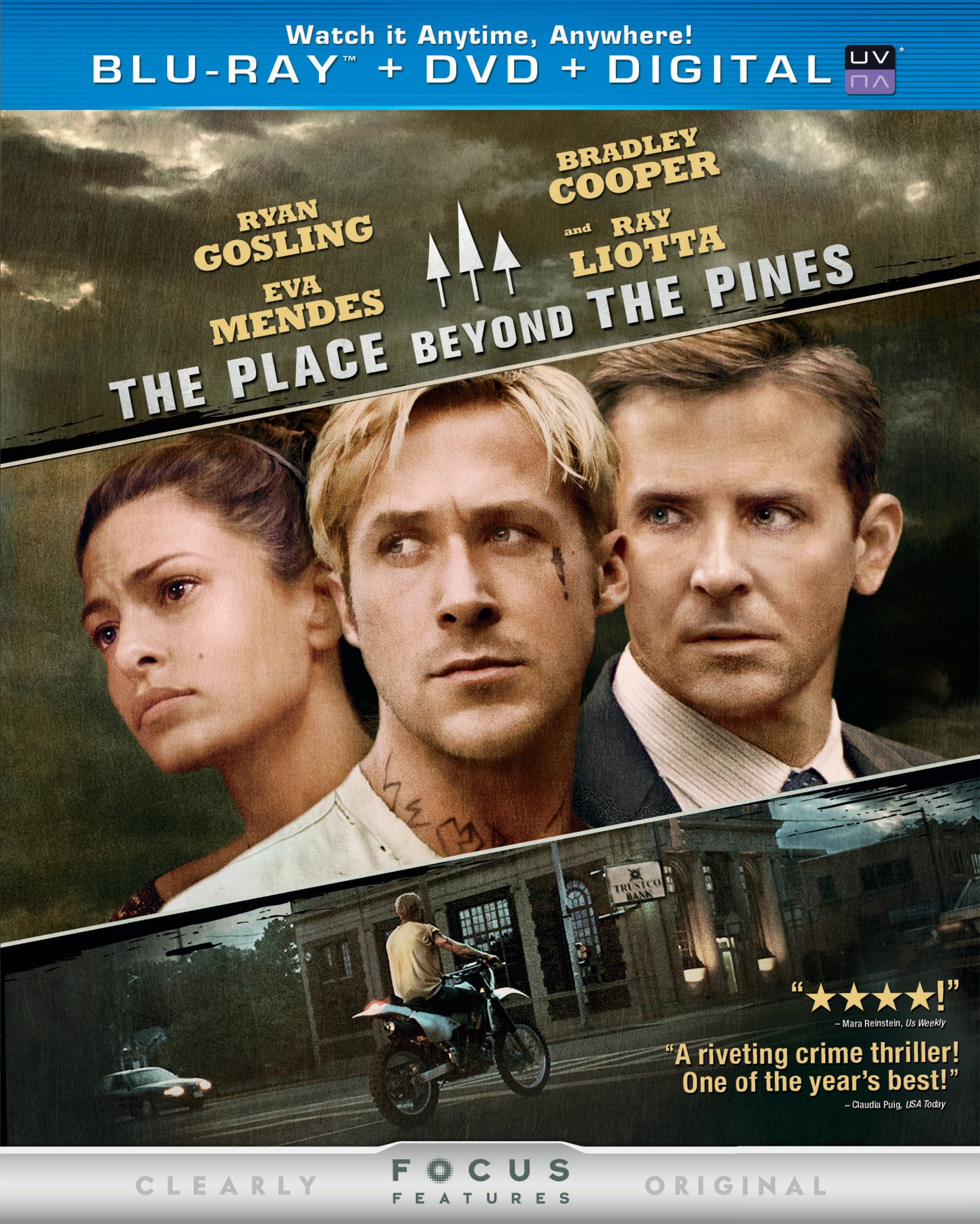
When you’re expecting your first child, almost everyone you encounter tells you that having a child will change everything. While it may be an old cliché, it’s still true. Children change your habits, your lifestyle, and your priorities. And, as director Derek Cianfrance’s latest drama, The Place Beyond the Pines, demonstrates, the decisions you make often affect the choices your children will make down the road.
The Place Beyond the Pines actually tells three stories. The first stars Ryan Gosling as Luke Glanton, a motorcycle stuntman who spends his life traveling from town to town. When he returns to Schenectady, New York, after another year on the road, he learns that he has an infant son. Though his son’s mother, Romina (Eva Mendes), has moved on, Luke is determined to be a part of his son’s life, so he quits his job and decides to settle in town.
As Luke struggles to earn the money he needs to support his son, his new friend, Robin (Ben Mendelsohn), suggests robbing banks. And as Luke gets caught up in his new life of crime, he makes a dangerous mistake that leads him to ambitious rookie cop Avery Cross (Bradley Cooper), who’s struggling to fit into a corrupt department.
The Place Beyond the Pines is a character-driven story about fathers and sons. It’s about two very different men from two very different walks of life trying to do the right thing—and how the sins of the fathers affect the lives of their children. It’s sure to hit close to home for any parent—but while the message behind the story is an important one, the storytelling is too choppy and drawn-out to be truly effective.
Instead of combining the characters’ stories into one cohesive, free-flowing whole, they’re broken up into three separate—and barely overlapping—parts. Avery doesn’t show up until the end of Luke’s story—nearly an hour into the film. And the third part takes place after a sudden jump into the future. The abrupt shift in focus is jarring—and distracting—and it’ll be enough to pull most viewers right out of the story.
Meanwhile, the three parts of the film feel like three separate, nearly full-length films. All three parts drag on much longer than necessary, moving at a deliberate pace—and what starts out as a quiet, haunting tone soon turns grim and heavy. The story could have been told in significantly less time—and, had it been more concise, it may have packed more of a punch, too.
The themes that run throughout The Place Beyond the Pines are certainly significant ones—and the performances are noteworthy, too. But as the film shifts and changes and drags along, it slowly loses its potency—and it ends up feeling long and heavy and dull.


